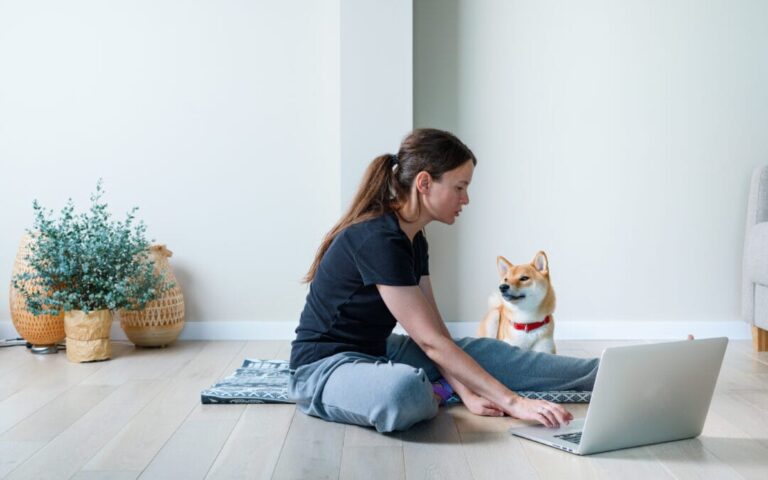Introduction:
When looking to welcome a new canine companion into your life, finding the right breeder is crucial. This ensures not only the health and well-being of the puppy but also provides a good foundation for your future relationship with your new pet. A reputable breeder should be transparent and willing to answer any questions you have. Here are essential questions to consider when speaking with a dog breeder.
Understanding the Breeder’s Background
What is Your Experience and Expertise?
While assessing a canine reproducer, understanding their experience and mastery is essential. Ask how long they have been rearing canines and what persuaded them to enter this calling. A proficient reproducer ought to have significant involvement with raising and preparing canines, particularly in the particular variety you are keen on. They ought to likewise have the option to share their rearing way of thinking and practices, which will give you knowledge into their commitment to the variety.
Notwithstanding their reproducing experience, ask about their association in the canine local area. A legitimate reproducer frequently partakes in canine shows, clubs, and breed associations, which exhibits their obligation to keeping up with breed norms. This contribution permits reproducers to remain informed about the most recent medical problems and breed advancements, guaranteeing they produce sound pups. On the off chance that the raiser is a functioning individual from breed-explicit clubs or associations, it can likewise demonstrate their commitment to moral rearing practices.
Can I Visit Your Facility?
Visiting the breeder’s facility is a crucial step in your decision-making process. This visit allows you to assess the living conditions of the dogs and puppies, which reflects the breeder’s commitment to their animals’ well-being. Ask if you can tour the facility, and take note of cleanliness, space, and how the dogs are treated. A responsible breeder will welcome this visit and show you where the puppies are raised, as well as their parents.
During your visit, observe the socialisation and environment in which the dogs are raised. Puppies should be in a safe, clean space with ample room to play and interact with each other. The breeder should also provide insight into their socialisation practices, ensuring that puppies are well-adjusted and exposed to various stimuli. This environment will play a significant role in the puppies’ development, impacting their behaviour and temperament in their new homes.
Health and Genetics of the Puppies
What Health Testing Do You Conduct?
Health testing is a critical aspect of responsible breeding. Ask the breeder what health screenings and genetic tests they perform on the parent dogs. Responsible breeders conduct tests for common breed-specific health issues, such as hip dysplasia, heart conditions, and genetic disorders. This information is vital as it helps identify any potential health risks for the puppies, ensuring that you are making an informed decision.
Additionally, reputable breeders should provide you with documentation of these health tests. Understanding the health history of the puppy’s parents can give you peace of mind regarding the potential health issues that may arise in the future. A responsible breeder prioritizes the health of their breeding stock and will be transparent about any health concerns or limitations related to the breed.
What Vaccinations and Vet Checks Are Provided?
Inquire about the vaccinations and veterinary care the puppies receive before you take them home. A responsible breeder will ensure that the puppies have been vaccinated according to their age and will provide you with vaccination records. This information is essential for your puppy’s health and helps establish a solid foundation for preventive care.
Moreover, ask if the puppies have undergone a vet check before being placed in their new homes. A thorough examination by a veterinarian ensures that the puppy is healthy and free from any immediate health issues. Understanding the breeder’s approach to veterinary care can give you confidence in their commitment to the puppies’ health and well-being.
Puppy Socialisation and Development
How Are the Puppies Socialised?
Socialisation is a crucial aspect of a puppy’s development. Ask the breeder how they socialise the puppies and what methods they use to expose them to various environments, sounds, and people. Puppies should be well-socialised before going to their new homes, as this will significantly impact their behaviour and adaptability.
A reputable breeder will provide opportunities for puppies to interact with people of different ages, other animals, and various stimuli. They should also encourage positive experiences and gradually introduce new situations to help the puppies develop confidence and reduce the likelihood of behavioural issues later on. Understanding the breeder’s socialisation practices can help you gauge how well-prepared the puppy will be for life in a new home.
What Kind of Early Training Do You Provide?
Early preparation is fundamental for a pup’s turn of events and can essentially influence their way of behaving as they develop. Inquire as to whether they give any early preparation to the young doggies. This could incorporate fundamental orders, carton preparing, and housebreaking. Capable reproducers frequently acquaint young doggies with fundamental preparation ideas to assist them with adapting to their new homes.
Furthermore, ask about the preparation strategies utilized by the raiser. Uplifting feedback techniques are by and large the best and compassionate, encouraging areas of strength for a between the little dog and their new family. A raiser who underlines early preparation and utilizations positive strategies exhibits their obligation to raising balanced and respectful canines.
Breeder Policies and Support
What Is Your Breeding Philosophy?
Understanding the breeder’s philosophy is vital when selecting a responsible breeder. Ask about their breeding goals and how they prioritise the health and temperament of the dogs. A reputable breeder focuses on producing healthy, well-tempered puppies that meet breed standards and contribute positively to the breed.
Additionally, inquire about the breeder’s approach to the puppy’s placement. A responsible breeder will not only consider the buyer’s needs but also prioritise finding suitable homes for the puppies. They should be willing to ask questions about your lifestyle and expectations to ensure a good match. This commitment reflects a breeder who genuinely cares about the future well-being of their puppies.
What is Your Return Policy?
Understanding the breeder’s return policy is crucial for any potential challenges that may arise after bringing your new puppy home. Inquire about their policy regarding returns or rehoming if necessary. A responsible breeder will often have a policy in place that encourages owners to return the dog to them if they can no longer care for it, rather than leaving the dog in a shelter or compromising its well-being.
A solid return policy is indicative of a breeder’s commitment to the dogs they produce. It reflects their understanding that circumstances can change, and they want to ensure the best possible outcome for their puppies throughout their lives. This support can be reassuring for new owners and reinforces the breeder’s responsibility for their dogs.
Puppy Care and Support
What Type of Support Do You Provide After Purchase?
Post-purchase support is an essential aspect of a responsible breeding relationship. Ask the breeder what type of support they offer after you take the puppy home. A reputable breeder should be available to answer questions and provide guidance on training, nutrition, and health care as the puppy grows. This support can be invaluable for first-time dog owners navigating the challenges of puppy parenthood.
Additionally, inquire if the breeder offers a contract that includes specific guarantees or support services. A written agreement can provide clarity regarding expectations and responsibilities on both sides. This transparency fosters a positive relationship between you and the breeder and helps establish a support network for your new puppy’s journey.
Do You Offer Any Guarantees or Contracts?
Understanding the guarantees and contracts provided by the breeder is crucial for protecting your investment and the well-being of your puppy. Inquire about any health guarantees or warranties that cover potential genetic disorders. Responsible breeders often offer a written contract that outlines their commitments, including health guarantees, return policies, and expectations for care.
These guarantees can give you peace of mind, knowing that the breeder stands behind the puppies they produce. A clear contract also outlines your responsibilities as an owner, ensuring that both parties understand their commitments. This transparency is essential for fostering a positive relationship between you and the breeder throughout your puppy’s life.
Assessing the Puppy and Its Parents
Can I Meet the Puppy’s Parents?
Meeting the little dog’s folks is a significant piece of evaluating the likely wellbeing and disposition of the pup. Inquire as to whether you can meet the mother (and conceivably the dad) of the litter. This collaboration permits you to assess the guardians’ way of behaving, wellbeing, and in general condition, giving knowledge into the attributes your doggy might acquire.
Moreover, noticing the guardians’ disposition can provide you with a feeling of what’s in store regarding demeanour and conduct. A very much associated and solid mother will probably decidedly affect her young doggies. On the off chance that conceivable, observe how the guardians interface with the reproducer and their environmental elements, as this will mirror their ways of behaving and flexibility.
What Are the Temperament Traits of the Litter?
Understanding the temperament of the litter is crucial when selecting a puppy that fits your lifestyle. Ask the breeder about the personality traits of the puppies in the litter. Each puppy may exhibit different characteristics, and a responsible breeder will be able to provide insight into each puppy’s behavior and temperament.
Inquire about how the puppies interact with each other and their environment. Are they shy or outgoing? How do they respond to new experiences? This information can help you choose a puppy whose temperament aligns with your household dynamics and expectations. A thoughtful approach to selecting a puppy based on temperament can lead to a more harmonious relationship.
Final Thoughts
Picking a canine reproducer is a critical choice that influences the wellbeing and prosperity of your future shaggy companion. By posing the right inquiries and get-together important data, you can go with an educated decision that benefits both you and your new doggy. The bond you structure with your canine starts with capable rearing practices, and understanding these perspectives will guarantee a cheerful and sound friendship into the indefinite future.
FAQs:
What are the signs of a responsible dog breeder?
A responsible dog breeder exhibits several key traits that indicate their commitment to ethical breeding practices. First, they are transparent about their breeding process, health testing, and the living conditions of their dogs. They should be willing to provide documentation of health screenings and vaccinations for both the puppies and their parents. Additionally, a reputable breeder will encourage you to visit their facility and meet the puppies’ parents, showcasing their dedication to the animals’ welfare.
Moreover, responsible breeders are knowledgeable about their chosen breed and actively involved in the dog community through participation in clubs and events. They should have a clear breeding philosophy focused on the health and temperament of the puppies, ensuring that they are well-socialized and prepared for their new homes. Finally, a reputable breeder will offer support after the sale, including a written contract outlining health guarantees and return policies, demonstrating their long-term commitment to the puppies they produce.
How can I identify red flags when dealing with a dog breeder?
When evaluating a dog breeder, it’s essential to be aware of potential red flags that may indicate irresponsible practices. One major warning sign is a reluctance to allow visits to their facility or to meet the puppies’ parents. If a breeder does not want you to see where the puppies are raised or seems evasive about their breeding practices, it’s best to proceed with caution.
Another red flag is if the breeder cannot provide documentation for health testing and vaccinations or if they dismiss the importance of such screenings. Additionally, be wary of breeders who have multiple litters available at once or who are primarily focused on profit rather than the welfare of their dogs. If the puppies appear unhealthy, are overly timid or aggressive, or show signs of neglect, these are significant concerns. Lastly, avoid breeders who pressure you into making a quick decision or do not ask about your lifestyle and suitability as a pet owner, as responsible breeders prioritise finding the right homes for their puppies.




